
River managers brace for a contentious summer as demand soars
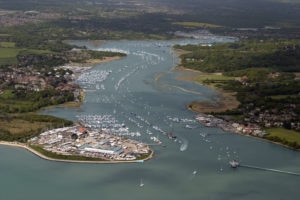
Managers admit there is often a ‘lack of awareness’ among users on the River Hamble and nearby coastline, as demand for spending time on the water continues to increase.
The recent spike in temperatures across the UK has seen large numbers of people take to waterways to cool off this summer. The River Hamble is no exception, with a diverse mix of sail and motorboat users, paddleboarders, swimmers, kayakers, and others convening to enjoy the benefits of being on the water.
But such demand has sparked debates among boat owners and river users about how to keep everyone safe and happy when competition for space is at a premium. The arrival of newer leisure activities such as paddleboarding and foil surfing has also muddied the waters around long-established ‘rules of the road’. Who — if anyone — should get priority?
“The UK Harbour Masters’ Association has for some time been aware of the year-on-year growth and rise of leisure activities within often congested and mixed-use waters around the UK, and the associated rise in risk levels,” says Capt Martin Willis, executive officer and secretary for the UK Harbour Masters’ Association (UKHMA).
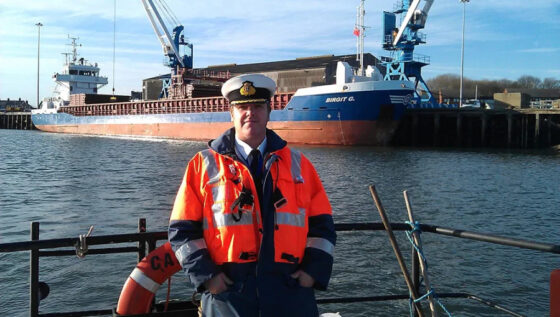
Captain Martin Willis says water users can often show a lack of respect for other groups during busy periods
“[It is correct to say] that there is often a lack of awareness and respect to other groups of water users when operating in mixed-use waters, which can create a raised risk level to users.”
The UKHMA works with regulatory agencies and marine associations such as the MCA, RYA and Personal Water Craft Partnership, regarding the safe management of water space. It says it ‘encourages the safe use of its statutory harbour limits for all responsible groups and individuals’. The association highlights that control and enforcement powers are available to combat unsafe or anti-social behaviour where necessary.
To that end, the Hampshire Police Marine Support Unit has launched ‘Operation Wavebreaker’ — in partnership with RNLI, Maritime and Coastguard Agency, Harbour Masters and others — to combat some of the anti-social or unsafe behaviour it says it has encountered in and around the water. Examples include small craft being used dangerously, and groups of people swimming in prohibited areas, causing a nuisance.
“In recent weeks, we have had incidents of people swimming in areas where vessels operate, and tombstoning from high structures,” a Unit spokesperson says. “While we don’t want to spoil the fun, there are inherent risks associated with this behaviour, including propeller strikes and impact injuries. The water may not always be as deep as it may appear, and there can often be subsurface hazards, particularly around quaysides and areas of industry.”
Tidal flow can also present a risk, particularly as it ebbs from harbours, which can quickly overpower and take people with it. Earlier this month, a man was rescued by Gosport lifeboat after being washed out by strong tides in Portsmouth Harbour. He was found clinging to a lateral navigation pile.
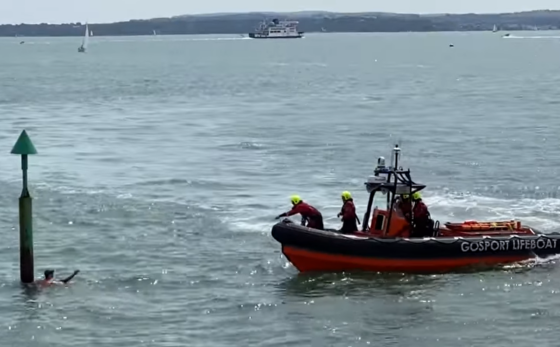
The GAFIRS crew rescues a man who was swept out to sea in Portsmouth Harbour in July
One Facebook user, commenting on a recent post about Operation Wavebreaker on the Hamble Harbour page, says: “My observation is not an antisocial issue but a concern that so few people on paddle boards, kayaks etc, wear any kind of buoyancy aid.”
Paddleboarding has soared in popularity in recent years and this has resulted in a dramatic rise in the number of accidents. Last August, a mother and nine-year-old daughter were rescued after getting stuck in mud while paddleboarding on the Hamble.
The same user says that they had recently witnessed “two lads lying flat down on their paddle boards facing upstream, in the main fairway of the Hamble.” They add: “That’s like riding your skateboard on the M27, blindfolded.
“There are safe side routes away from the main channels,” the comment concludes. “I just wish people used some common sense. The river is there for everyone. But you have to be sensible and respect the water.”
Willis says that the UKHMA fields complaints from boat owners about other waterway users on “a daily basis” during peak season, “especially in the more leisure-orientated southern UK ports and harbours and estuaries.”
He explains that safety is paramount when it comes to balancing the needs of different groups of recreational water users — and common sense should ultimately prevail in case of doubt.
“Many harbours have bylaws and directions for the safe control of often busy and potentially dangerous waters; other areas can be identified for safe recreational use,” he says. “While rules of the road exist for the safety of navigation, these do not always apply to many of the newly created leisure craft and leisure activities. Within many harbour limits, there is often no published priority; we would expect common sense to prevail with no wilful obstruction of any craft.”
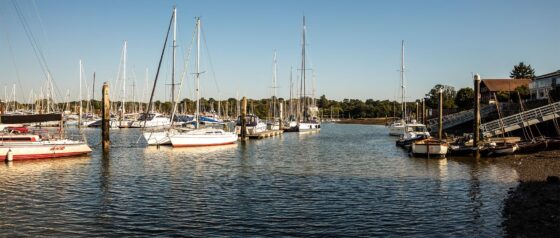
The River Hamble is a beloved and well-used waterway. Image courtesy of Visit Hampshire
For river users who are less confident, most leisure activities have national user associations and/or industry guidance on the safe and responsible use of equipment. Willis says the UKMHA ‘strongly advocates’ users to register for appropriate training in the activity of their choice.
“We would then urge that anyone intending to go on the water check the appropriate authority website for the safe operating procedures and the latest safety information,” he says. “Be responsible and respectful of other water users and avoid alcohol at all times when operating on water.”
One major problem is that not all water users are aware of their own responsibility regarding their activity and behaviour, Willis adds.
“Safety is paramount regardless of the type of activity taking place on the water; the balance is risk-based with guidance made available to all water users. All persons attending statutory Harbour Waters are stakeholders of that authority – however, with that status comes a responsibility of the individual to act in a safe, responsible and respectful manner at all times.”
Andrew Lewis is head of marketing for Premier Marinas, which operates several marinas on the south coast, including one at Swanwick on the Hamble.
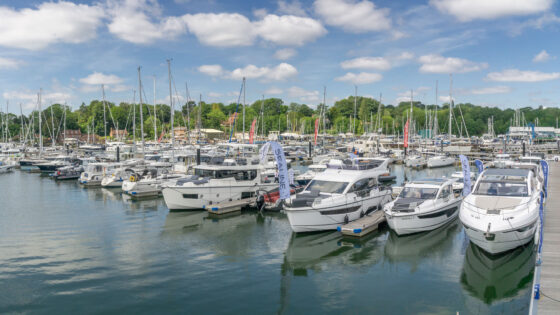
Swanwick Marina on the Hamble
“We welcome and encourage responsible use of the River Hamble and indeed all waterways and strive to ensure our marinas are places from which everyone can enjoy spending time on or near the water,” he says. “Our marinas are home to a diverse mix of sail and motor boat users, boat and yacht clubs, SUP operators and others all who share a love of the water. Importantly we also host a number of businesses that conduct training.”
Lewis points out that many boat users also enjoy other forms of water-based activities, including SUP, kayaking and swimming.
“Education and tolerance are key, and we encourage everyone, whatever their level of involvement, to invest time to undertake appropriate training offered via operators in association with the RYA,” he says. “There is ultimately space for everyone to enjoy what are some of the most beautiful locations in the UK.”
Find more information about safely using waterways, including the Hamble, on the Hampshire County Council website.
